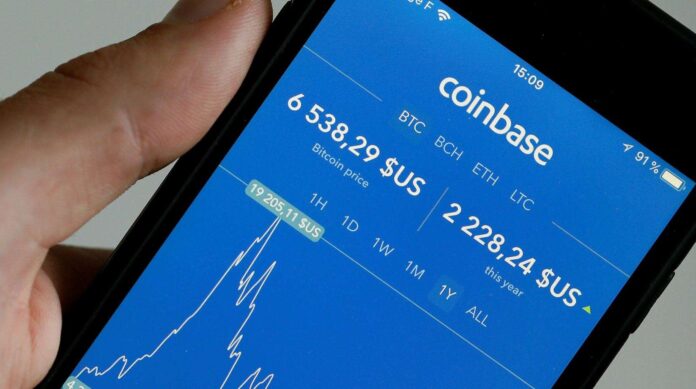- On March 1, a U.S. court set a legal precedent, of considering specific crypto transactions on the secondary market as securities trading concerning insider trading at Coinbase.
- This resolution underscores the SEC’s increasing focus on regulating the crypto industry and sets a precedent for future enforcement actions.
In a legal case concerning insider trading, a U.S. court ruled on March 1 that transactions involving certain crypto assets on a secondary market, such as Coinbase, qualify as securities transactions. The case involved Ishan Wahi, a former product manager at Coinbase, his brother Nikhil Wahi, and their friend Sameer Ramani, as reported by Crypto News Flash.
The court’s assessment remains consistent, extending to Ramani’s transactions on the secondary market. The judgment added that each issuer consistently asserted the profitability of their tokens, even as they were traded on secondary markets. Therefore, in accordance with the Howey test, all the crypto assets bought and traded by Ramani were deemed investment contracts.
The court adopted this significant stance in a default judgment against Ramani. A default judgment is rendered when the defendant fails to respond to a court summons or does not appear in court. “Ramani appears to have fled the country to avoid criminal prosecution for the actions alleged in this case,” the filing said.
In May 2023, the SEC resolved charges against Ishan Wahi and Nikhil Wahi in what it termed the “first-ever insider trading case involving cryptocurrency markets.”
Coinbase’s Court Ruling Holds Significance
The recent court ruling against Ramani has assumed added importance amidst ongoing debates surrounding the regulatory status of cryptocurrencies. The judgment holds particular significance as it addresses the argument raised by the crypto industry and Coinbase (COIN) that cryptocurrencies should not be classified as securities, thereby exempting them from Securities and Exchange Commission (SEC) oversight.
SEC Chair Gary Gensler has consistently maintained that most cryptocurrencies meet the criteria for securities and has emphasized the necessity for crypto exchanges to register with the SEC. The court’s decision in this case is seen as a pivotal moment in this ongoing debate.
The ruling against Ramani includes several penalties, notably prohibiting future violations, imposing a civil penalty amounting to twice the proceeds gained, totaling $1,635,204, and ordering disgorgement of identified proceeds totaling $817,602. However, the court declined the SEC’s request to impose prejudgment interest.
This isn’t the initial instance where a U.S. court has deliberated on whether sales of specific cryptocurrencies constitute unregistered securities, whether executed on secondary platforms such as exchanges or elsewhere.
In July, Federal District Judge Analisa Torres concluded that although Ripple breached federal securities laws by directly selling XRP to institutional investors, it hadn’t done so by offering XRP to retail customers through programmatic sales to exchanges. However, in December 2023, Judge Jed Rakoff dissented with Judge Torres in the Terraform Labs case. As per the Crypto News Flas report, a top lawyer at SEC has left increasing chances of Ripple and Coinbase’s victory.
Credit: Source link






















 Bitcoin
Bitcoin  Ethereum
Ethereum  XRP
XRP  Tether
Tether  Solana
Solana  USDC
USDC  Dogecoin
Dogecoin  Cardano
Cardano  Lido Staked Ether
Lido Staked Ether  TRON
TRON  Wrapped Bitcoin
Wrapped Bitcoin  Wrapped stETH
Wrapped stETH  Chainlink
Chainlink  Avalanche
Avalanche  Sui
Sui  Stellar
Stellar  Litecoin
Litecoin  Shiba Inu
Shiba Inu  Toncoin
Toncoin  Hedera
Hedera  LEO Token
LEO Token  USDS
USDS  Hyperliquid
Hyperliquid  WETH
WETH  Polkadot
Polkadot  MANTRA
MANTRA  Bitcoin Cash
Bitcoin Cash  Bitget Token
Bitget Token  Ethena USDe
Ethena USDe  Wrapped eETH
Wrapped eETH  Uniswap
Uniswap  Monero
Monero  NEAR Protocol
NEAR Protocol  Pepe
Pepe  WhiteBIT Coin
WhiteBIT Coin  Aave
Aave  Ondo
Ondo  Bittensor
Bittensor  Aptos
Aptos  Internet Computer
Internet Computer  Dai
Dai  Official Trump
Official Trump  Ethereum Classic
Ethereum Classic  Tokenize Xchange
Tokenize Xchange  Mantle
Mantle  OKB
OKB  Gate
Gate  sUSDS
sUSDS  Coinbase Wrapped BTC
Coinbase Wrapped BTC 
